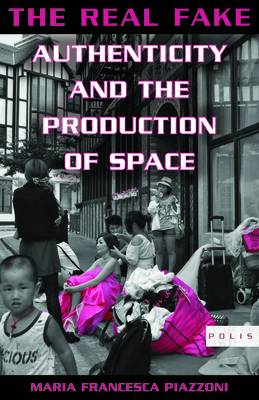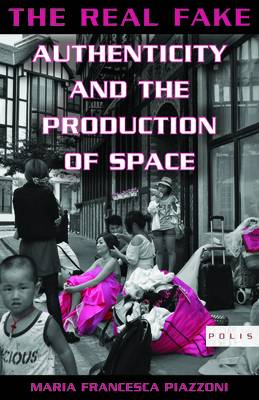
- Afhalen na 1 uur in een winkel met voorraad
- Gratis thuislevering in België vanaf € 30
- Ruim aanbod met 7 miljoen producten
- Afhalen na 1 uur in een winkel met voorraad
- Gratis thuislevering in België vanaf € 30
- Ruim aanbod met 7 miljoen producten
Zoeken
Omschrijving
Thames Town--an English-like village built in Shanghai--is many places at once: a successful tourist destination, an affluent residential cluster, a city of migrant workers, and a ghost town. The Real Fake explores how the users of Thames Town transform a themed space into something more than a "fake place." Piazzoni understands authenticity as a dynamic relationship between people, places, and meanings that enables urban transformations. She argues that authenticity underlies the social and physical production of space through both top-down and bottom-up dynamics. The systems of moral and aesthetic judgments that people associate with "the authentic" materialize in Thames Town. Authenticity excludes some users as it inhibits access and usage especially to the migrant poor. And yet, ideas of the authentic also encourage everyday spontaneous appropriations of space that break the village's staged atmosphere. Most scholars criticize theming by arguing that it produces a "fake," controlling city. Piazzoni complicates this view by demonstrating that although the exclusionary character of theming remains unquestionable, it is precisely the experience of "fakeness" that allows Thames Town's users to develop a sense of place. Authenticity, the ways people construct and spatialize its meanings, intervenes holistically in the making and remaking of space.
Specificaties
Betrokkenen
- Auteur(s):
- Uitgeverij:
Inhoud
- Aantal bladzijden:
- 140
- Taal:
- Engels
- Reeks:
Eigenschappen
- Productcode (EAN):
- 9780823280926
- Verschijningsdatum:
- 30/10/2018
- Uitvoering:
- Paperback
- Formaat:
- Trade paperback (VS)
- Afmetingen:
- 140 mm x 216 mm
- Gewicht:
- 185 g

Alleen bij Standaard Boekhandel
+ 32 punten op je klantenkaart van Standaard Boekhandel
Beoordelingen
We publiceren alleen reviews die voldoen aan de voorwaarden voor reviews. Bekijk onze voorwaarden voor reviews.








